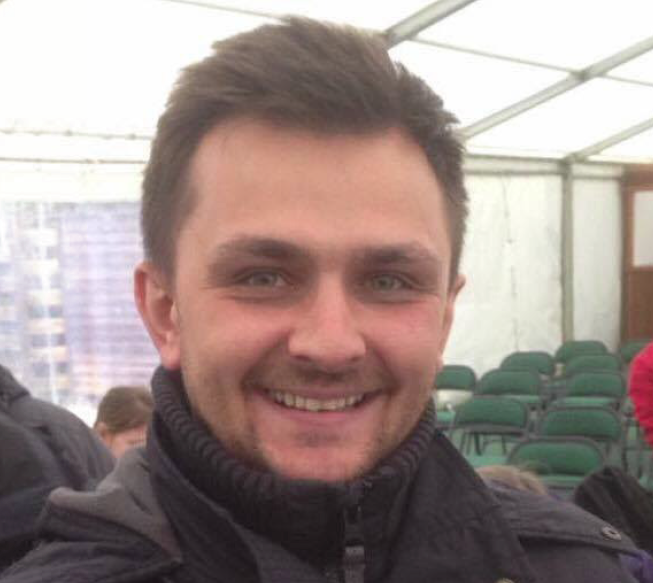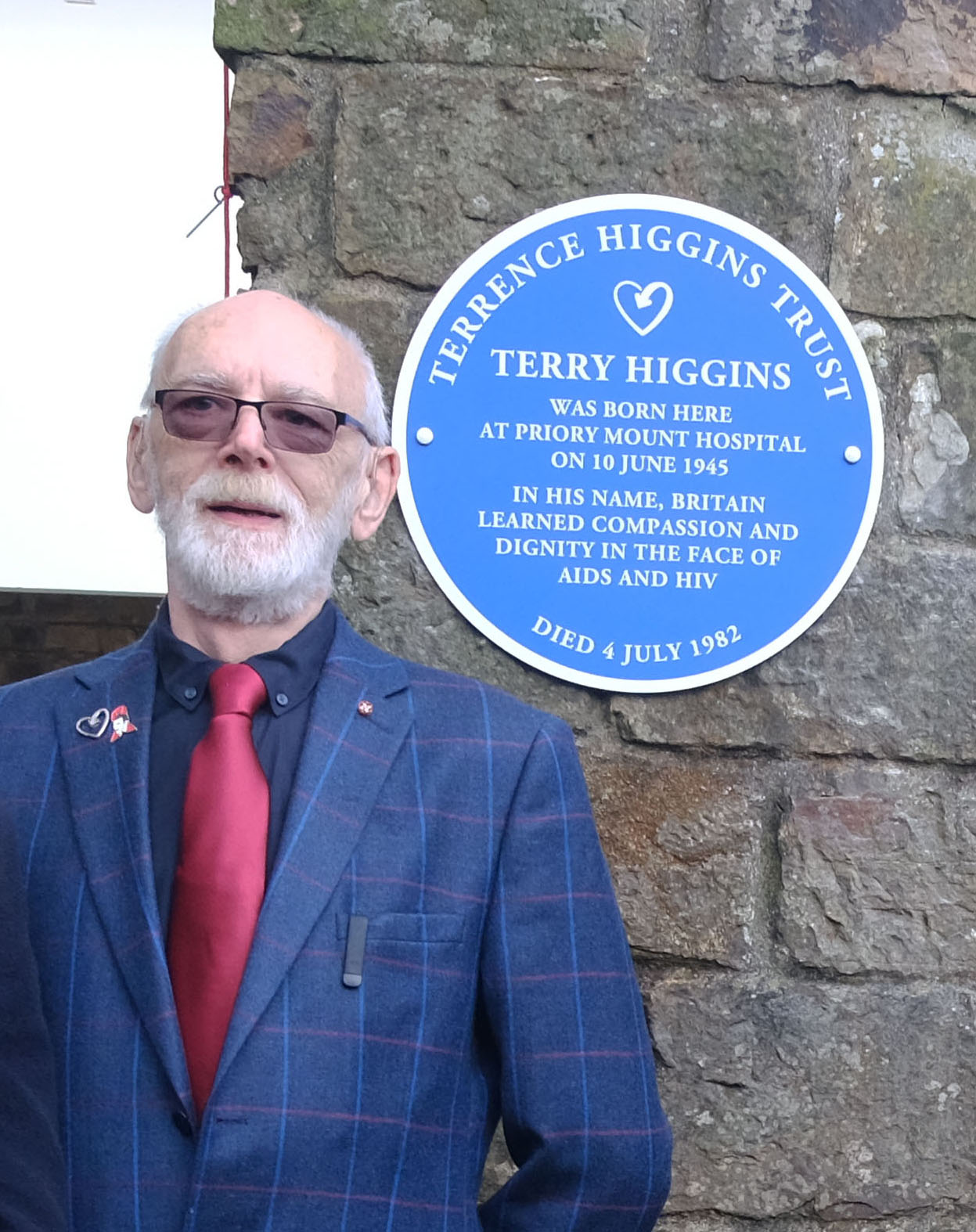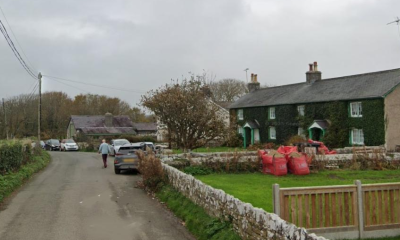News
Paramedic’s ‘nasty assault’ is ‘tragic’


Justin Chilvers: Likely to lose his job after ‘nasty’ assault
A PARAMEDIC who assaulted a woman appeared at Haverfordwest Magistrates’ Court on Wednesday (Mar 15).
30-year-old Justin John Chilvers, who now lives in Reading, initially pleaded not guilty to the charge and arrived at Haverfordwest Law Court prepared for a trial, however pleaded guilty at the last minute.
The court heard that on October 22 last year, Chilvers had gone out in the evening with a female, along with eight other friends, who all consumed alcohol.
Prosecuting, Vaughan Pritchard- Jones, said that Chilvers had over ten pints that night, and is also on anti-depressants. The complainant said she had over a bottle of wine and five double vodkas.
Mr Pritchard-Jones explained: “This was a nasty assault. It was around 3-4am, the morning after their night out. There was a lock in at the RAFA Club in St Davids. The defendant became involved in a confrontation with another man, and the complainant and one other person ended up outside.
“Chilvers asked the complainant to walk away, but she didn’t want to because she had left her bag inside. However, she walked down an alleyway with him.”
Mr Pritchard-Jones went on to say that Chilver started ‘having a go’ at the victim, saying she hadn’t supported him when he had been confronted in the nightclub, and she just ‘stood by’.
“The next thing she remembers,” said Mr Pritchard-Jones, “he pushed her hard and she fell to the ground. He kicked her to the leg and upper body, and she felt a number of blows coming in, but she couldn’t say where they were coming from or what they were with.”
He continued: “She was pulled back up to her feet and they moved further down the alleyway. He pushed her over again, and he got on top of her, placed his hands around her neck and began to strangle her.”
The court heard that the victim said when Chilvers stopped, he looked like he was in ‘complete shock’, as if he ‘couldn’t believe what he had done’.
Mr Pritchard-Jones said she then started walking in front of him back to the club, and when she got a bit of distance between them, she ran. He ran after her, and rugby tackled her to the floor, causing grazing injuries.
It was at that point that people came out of the RAFA Club and the assault stopped.
Mr Pritchard-Jones said: “The defendant admitted putting his hand around her throat, and said he did it inside the pub to bring her outside for her own protection. He admitted kicking but only once.”
Photographs of the victim’s injuries were shown to the court, which depicted multiple bruises on both sides of her neck, her shoulder and her leg.
Mr Pritchard-Jones described these as ‘nasty’ bruises.
The victim’s statement was read out to court, in which she said she now feels too scared to go out after dark. Her mother has had to take two weeks off work to support her, and her father has also had to have time off.
She said she feels worried and anxious, and has difficulty sleeping. However, she said she wishes Chilvers ‘all the best’, and hopes he ‘learns from his mistakes and has a good life’.
Speaking in Chilvers’ defence, Paul Gilmartin told the court that Chilvers was attacked by three men that night before this incident, which was an unprovoked attack. He claimed that the victim had tried to intervene, and Chilvers got hold of her and ‘pulled her out’.
He also said that after the assault, when she decided to go back to the club, Chilvers felt she shouldn’t have gone back ‘for her own good’, which is why he brought her ‘to the ground’.
Mr Gilmartin said: “He accepts full responsibility and shouldn’t have behaved in that way. Chilvers has come from a very difficult family. Other members of his family have found themselves on the wrong side of the law, but Chilvers has taken a different path. But, his past was there to catch up with him.”
He also told the magistrates that Chilvers will now likely lose his job as a paramedic, and is contemplating joining the military.
After being asked to choose a financial penalty rather than a community order or custodial sentence, the chair of the bench said: “We have taken an unusual step of not going for reports.
“We consider this a category two offence, which is very serious. This is quite tragic. You will probably lose your job. You as a paramedic must have seen the effects of alcohol and drugs.”
Chilvers was ordered to pay a £720 fine, £72 victim surcharge, £350 prosecution costs, and £1,000 compensation to the victim.
A restraining order was also imposed, which restricts Chilvers from contacting the victim directly or indirectly, or entering Pembrokeshire at all.
Crime
Tenby man due in court charged with rape and sexual assault

A TENBY man is due to appear before the court on Tuesday (Mar 3) charged with rape and sexual assault following an alleged incident last year.
Wayne Allen, aged 57, of St Julians Street, Tenby, is listed for a first hearing at 2:00pm.
He faces one count of rape, contrary to Section 1 of the Sexual Offences Act 2003, relating to an allegation that on May 20, 2024, he intentionally penetrated a woman without her consent and without a reasonable belief that she was consenting.
Allen is also charged with sexual assault, contrary to Section 3 of the same Act, relating to alleged sexual touching of a woman between May 19 and May 20, 2024.
Rape is an indictable-only offence, meaning the case can only be dealt with at Crown Court, so the case will be sent up.
The Herald will report the outcome after the hearing.
Community
Martyn Butler dies aged 71 months after Haverfordwest visit

Co-founder of Terrence Higgins Trust attended local plaque unveiling honouring friend Terry Higgins
A LEADING figure in the UK’s response to the HIV/AIDS crisis has died aged 71 — just months after attending a plaque unveiling ceremony in Haverfordwest honouring his close friend Terry Higgins.
Martyn Butler, who helped establish the Terrence Higgins Trust in 1982 following Higgins’ death from an AIDS-related illness, died on Friday (Feb 21). He had remained active in awareness work for more than four decades and was widely recognised for his contribution to public health campaigning.
The Terrence Higgins Trust confirmed his death, paying tribute to his lifelong commitment to supporting people living with HIV and improving sexual health education across the UK.
Butler’s connection to Pembrokeshire was particularly strong. Terry Higgins, after whom the charity is named, grew up in Haverfordwest and attended Tasker Milward School. Higgins is widely recognised as one of the first people in the UK known to have died from AIDS-related complications in 1982.
Last year, Butler travelled to Haverfordwest to attend the unveiling of a blue plaque commemorating Higgins’ life. The ceremony marked an important moment in recognising both Higgins’ story and the wider history of the HIV/AIDS epidemic, which claimed thousands of lives in the UK during the 1980s and 1990s.
Friends and colleagues described Butler as a tireless advocate who helped shape the national response to the emerging AIDS crisis at a time when fear, stigma and misinformation were widespread.
In the early days of the epidemic, Butler famously used his own home telephone number as part of one of the UK’s first AIDS helplines, offering advice and support to people who had nowhere else to turn.
Over the decades that followed, the Terrence Higgins Trust grew into the country’s leading HIV and sexual health charity, providing testing services, education programmes, support networks and national campaigning.
Butler was appointed an Officer of the Order of the British Empire (OBE) in 2022 in recognition of his services to people affected by HIV.
Tributes have been paid from across the UK health and charity sectors, with colleagues describing him as compassionate, determined and instrumental in changing public attitudes towards HIV.
His death comes at a time when medical advances mean people living with HIV can now expect near-normal life expectancy with treatment — a transformation many campaigners say would not have been possible without the groundwork laid by early activists such as Butler.
Local figures who met him during the Haverfordwest plaque unveiling said he remained passionate about ensuring the stories of those affected by HIV — including Terry Higgins — were remembered by future generations.
Funeral arrangements have not yet been publicly announced.
Image:
Martyn Butler at the Terry Higgins plaque unveiling in Haverfordwest (Pic: Martin Cavaney).
Education
School in lockdown after reported phone threat

DYFED POWYS POLICE are dealing with an incident at a secondary school after a threat was reportedly made by telephone.
Officers were called to Maesydderwen Comprehensive School in Ystradgynlais on Monday (Mar 2), where the school implemented its lockdown procedure as a precaution to prioritise safety.
A police spokesperson said officers are working with the school following the report and parents have been informed through the school messaging app.
Police confirmed there are no reports of anyone injured and that all pupils and staff on site are safe and secure.
Officers remain at the scene and further information will be shared when available.
-

 News6 days ago
News6 days agoLabour and Plaid criticised over £1.2m anti-racism ‘metaverse’ project
-

 Charity7 days ago
Charity7 days agoCharity launches bid to save Foley House with new community cooperative
-

 Health6 days ago
Health6 days agoHealth services row escalates as MSs demand action over Withybush and Bronglais
-

 Crime7 days ago
Crime7 days agoMotorbike thefts linked to Facebook Marketplace spark police warning
-

 Politics6 days ago
Politics6 days agoFarage vows to strip Cardiff’s ‘City of Sanctuary’ status ahead of manifesto launch
-

 Health5 days ago
Health5 days agoPetition calling for Withybush intervention nears 5,000 signatures
-

 News5 days ago
News5 days agoWelsh Government criticised after Russian-linked drone image used in defence announcement
-

 Business6 days ago
Business6 days agoBosherston Bistro 10pm alcohol licence granted by council



























